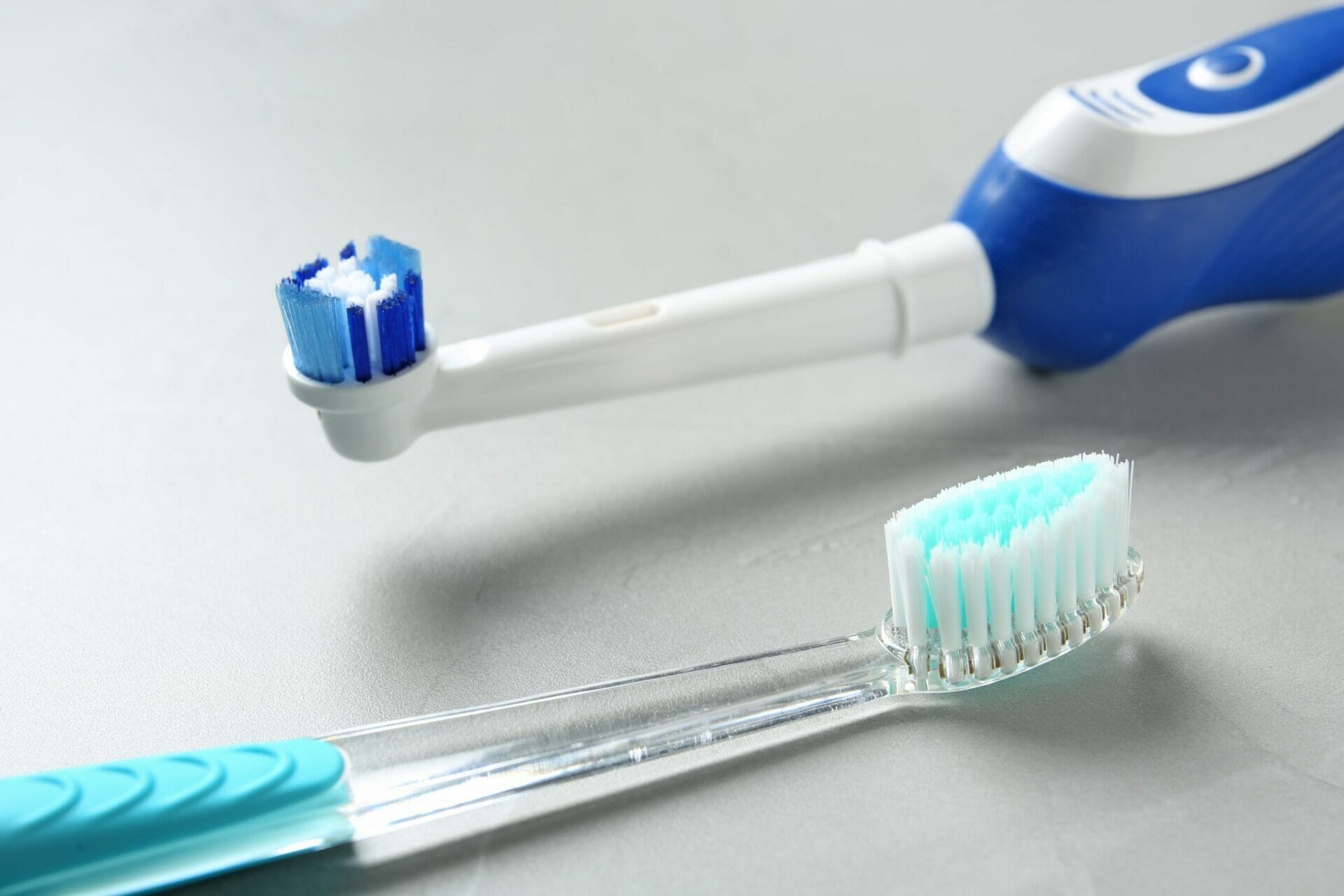
Electric toothbrushes gain in popularity each year. People feel that electric brushes get their teeth cleaner when compared to manual brushes. But, is this true? Are there dangers associated with using an electric brush and which type is best?
Read on for some very helpful answers regarding electric toothbrushes!
We would probably all consider a toothbrush that gets your teeth cleaner, faster to be better than one that does not. Well, here's the thing: electric toothbrushes clean you teeth faster than do manual toothbrushes. So, if you brush for 90 seconds, the electric toothbrush will outperform its manual counterpart. However, if you brush for 3 minutes, research shows that the 2 brush types are comparable.
Now, the electric version requires less effort and manual dexterity on your part. For most people, that has an advantage, too. And when you think about kids (who are likely to brush very quickly and for a short time) or someone who has lost their ability to manipulate a manual toothbrush (due to arthritis or other conditions), you'll see a clear advantage for the efficiency that an electric toothbrush provides.
The electric toothbrush brings with it built-in vibration or rotation (depending on the type of brush). These toothbrushes also have shorter bristle heads with less flex than the bristles on a manual brush. This means that you may be putting additional force on your teeth and gums with an electric brush.
The key is to let the brush do most of the work. Move around your teeth and gums with light pressure. We do see patients who transition to electric toothbrushes and begin to experience gum recession within 1-2 years. Don't panic. This doesn't mean that electric toothbrushes are bad or harmful. It just means that you need to be aware of the potential for hard and soft tissue irritation. So, again, use light pressure when using your new electric toothbrush.
This is a difficult question to answer. There are two main types of electric toothbrush, those with a rotating bristle head and those with an oscillating bristle head. So, the rotating bristle head moves around in a circle while the oscillating one kind of vibrates.
Research shows that electric toothbrushes with rotating bristle heads do a better job. They remove more plaque and get your teeth cleaner.
Oral B makes a good rotating bristle, electric toothbrush. There are other brands that make effective rotating bristle toothbrushes as well.
As I wrote above, electric toothbrushes have the ability to irritate the gum tissues and cause gum recession. For this reason, I recommend avoiding heavy pressure when brushing your teeth.
Because of the vibrational motion of bristle heads on an oscillating toothbrush, it's possible to chip fillings with an oscillating electric brush. Please keep in mind that this is very uncommon. For the most part, these toothbrushes are safe to use.
(As a special consideration, be careful using an electric brush around post-treatment healing areas including tooth extraction sockets and areas where you've had bone grafts or socket preservation grafts).
Both manual and electric toothbrushes are effective at removing plaque. However, tartar (which is calcified/mineralized plaque and can be very tenacious) can be much more difficult to remove. Typically, bulk tartar removal can only be achieved with dental tools used at your routine dental cleaning appointments.
You may get lucky and remove the occasional piece of tartar using an electric brush but don't count on that happening regularly. Moreover, you want to avoid using heavy pressure and an aggressive technique to try to remove or displace tartar. That can do more harm than good in the long run.
Our Kitchener Dental Office is conveniently located in Downtown Kitchener and we are a short drive away for families in Waterloo, Breslau & St. Jacobs. Our central location means we truly offer family dentistry near you!
This article is meant to promote understanding of and knowledge about general oral health topics. It is not intended to be a substitute for professional advice, diagnosis or treatment. Accordingly, always seek the advice of your Kitchener Dentist or other healthcare provider regarding a dental condition or treatment.
Services
Routine Dentistry & Tooth Repair
Oral Surgery & Tooth Removal
Prosthetic Dentistry & Tooth Replacement
Protective/Preventive Services
Teeth Whitening
Schedule an Appointment Now
